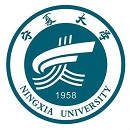The university occupies an area of 2,938 acres, and its experimental farms cover another 1890 acres. Enrolling students from 28 provinces, autonomous regions and municipalities, it now has 17,353 undergraduates, 3,700 graduates, 2,212 ethnic preparatory students and over 320 international students. It has 2,657 staff members. It is equipped with modern digital library and multifunctional gymnasium.
There are now 24 schools, 77 undergraduate disciplines, 1 national key discipline, 1 national key disciplines (Nurture), 18 key disciplines of the autonomous region level, 8 characteristic & preponderant disciplines of Hui autonomous region under the 13th Five-Year Plan, 7 key construction disciplines under the “211 Project”, 1 key nurture discipline under the “211 Project” and 8 key disciplines of autonomous region level under the 13th Five-Year Plan, among which 10 disciplines have been chosen as top ones for further construction by the government. Besides, there are 5 first-level doctoral programs, 26 second-level doctoral programs, 26 first-level master programs, 163 second-level master programs and 8 Masters’ degree authorization centers. Moreover, there are 3 post-doctoral mobile research stations in ethnology, water conservancy projects and grass science. It has also set up 12 autonomous regional academician workstations, which covers 10 disciplines: philosophy, economics, law, education, literature, history, science, engineering, agriculture and management.
Ningxia University adheres to the opening direction of running a university. It has established substantial relationships in communication and cooperation with many famous domestic universities, such as Shandong University and Northwest Agriculture and Forestry University. Based on regional characteristics and dominant disciplines, it has established cooperative relationships with dozens of universities from tens of countries and regions. Collaborating with the University of Dubai, United Arab Emirates, it has established the first Confucius Institute in the Gulf. Ningxia University is the first batch of universities authorized by the Ministry of Education to enroll international students, the one enrolling international students with Chinese government scholarships or Hanban (Confucius Institute Headquarters) scholarships and the only one in Ningxia that is authorized by Hanban (Confucius Institute Headquarters) to hold HSK (Hanyu Shuiping Kaoshi). Since 1992, more than 2,000 international students have come to Ningxia university to study, and they are from over 40 countries such as the United States, South Korea, Japan, Russia, Australia, Norway, Mexico, Sultan, Egypt, Turkey, and Kyrgyzstan. Now, there are more than 320 international students studying here. All majors are open to international students, including not only undergraduates, graduates and PHD students studying for degrees but also language learning students, advanced learning students, visiting scholars and people from all kinds of short-term study tour (culture experience) programs.
School of International Education of Ningxia University is for international students’ education and management. The school has a set Chinese major, in which no more than 20 students are taught in a class. It carries out individualized teaching, standardized and institutionalized management towards international students, providing them with all-around and humanized services. In 2010, the newly built office-and-teaching building covers 3,420 square meters, which is equipped with multimedia language laboratory, network laboratory, library, multifunctional hall, Chinese culture experience hall, gymnasium, etc. There are foreign student apartments on campus, which are safe and comfortable with good services. All in all, Ningxia University has become an ideal place for foreign students to further their study.
Facing the future, Ningxia University will further adhere to the principle of “people-oriented, scientific development, striving for excellence, managing the university by law and comprehensive reform”, promote its development in the direction of being unique, innovative and sustainable and make arduous efforts to become a first-class teaching and research university with distinctive regional characteristics and outstanding capacity to serve the local places in the west.



